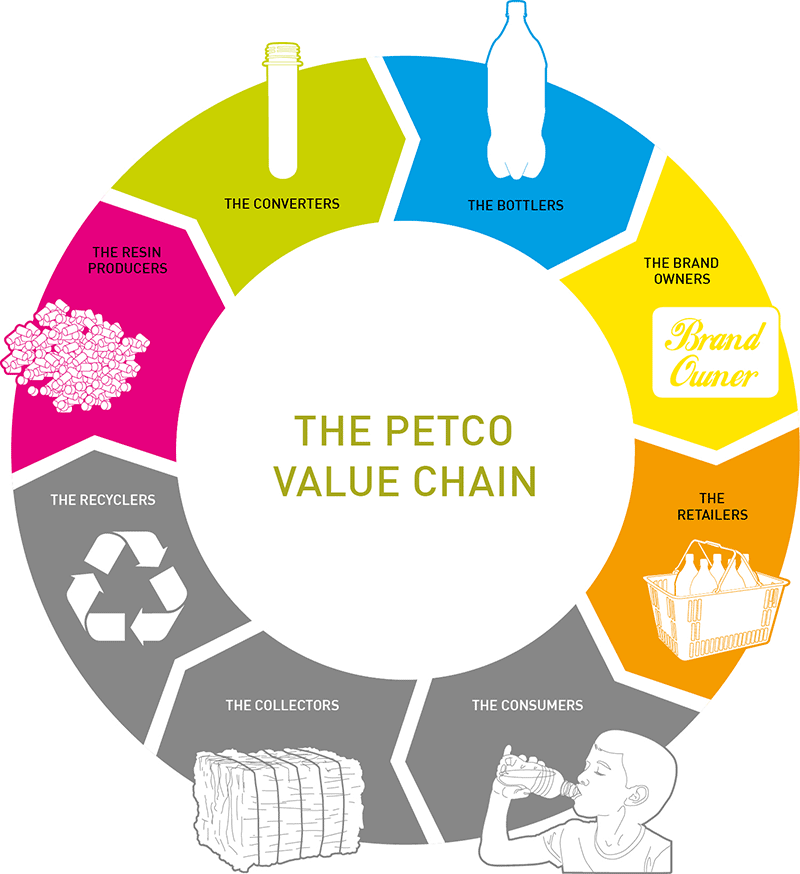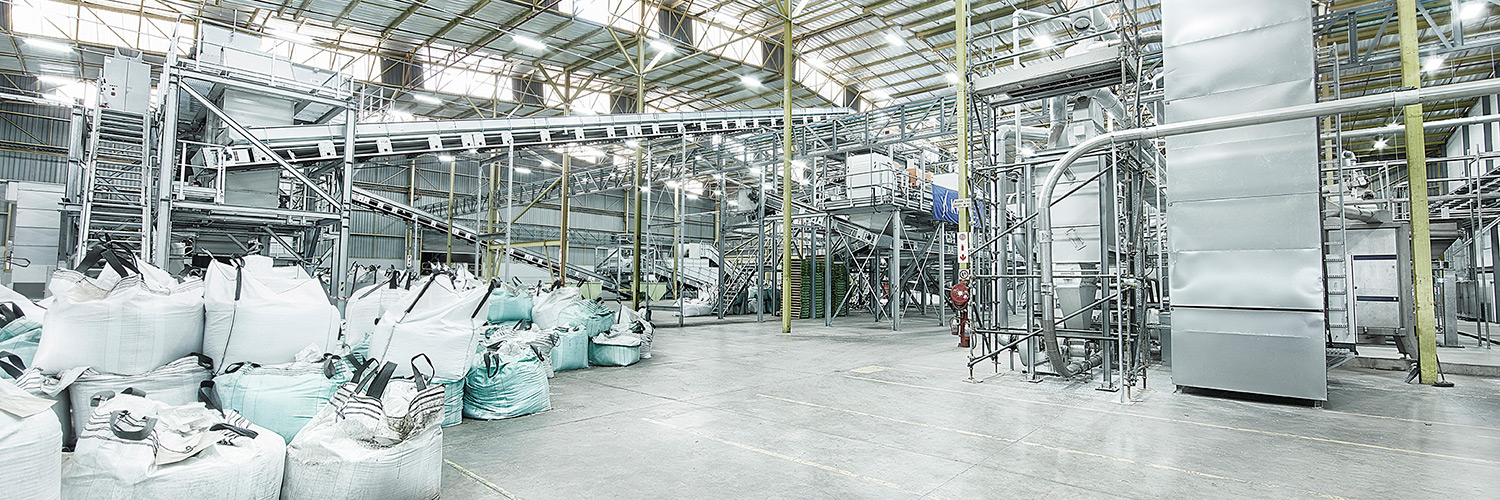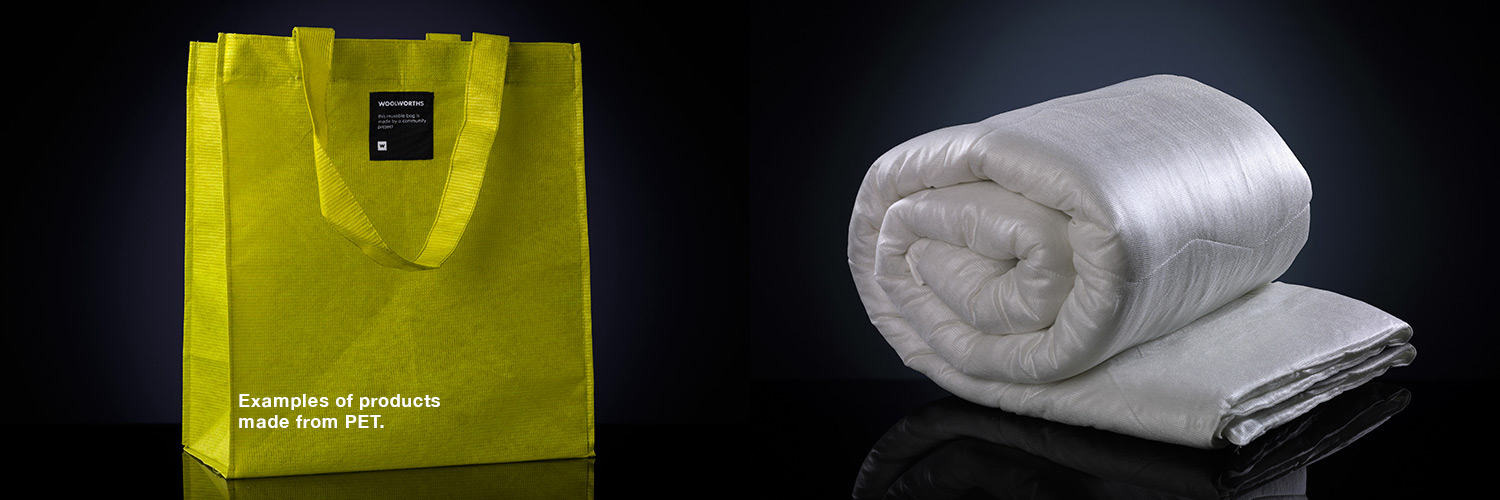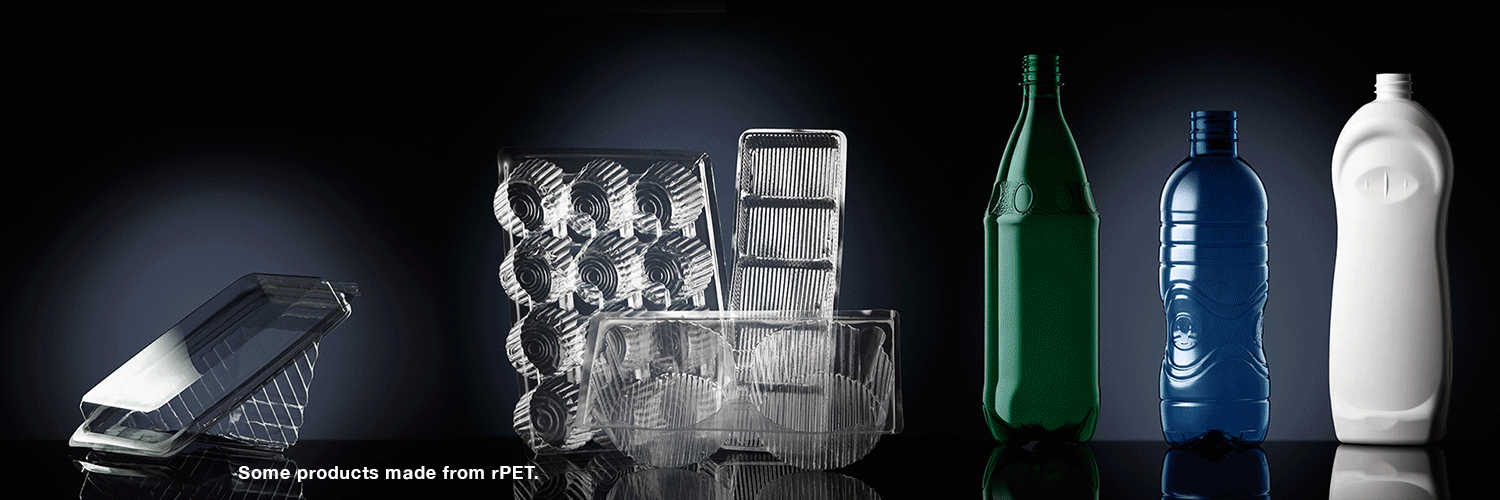PET bottles are made of one of the few polymers that can be recycled into the same form – a new beverage bottle – again and again. This neatly closes the recycling loop and enables ‘cradle to cradle’ packaging solutions.
As with virgin PET, recycled PET (rPET) can be used to make many new products, including polyester staple fibre or filament used for apparel (clothing), home textiles (duvets, pillows, carpeting), automotive parts (carpets, sound insulation, boot linings, seat covers) and industrial end-use items (geotextiles and roof insulation), and new PET packaging and bottles for both food and non-food products. It is generally blended in a ratio of virgin to recycled, depending on the application required.


We wear it, we drink from it, we sit on it – recycled plastic is turning up everywhere. So next time you see a number one pressed into the bottom of your mineral water bottle, just think – you might be wearing it in a few months’ time.
Recycled PET (rPET) is used for numerous applications. From reusable carry bags to roof insulation; recycled plastic is all around us.
Carpet companies use recycled fibre to make polyester carpets. PET is spun into fibre filling for pillows and quilts. Fibre is also used to make clothing, jackets and even polar fleeces. PET bottles may even reappear in the form of non-woven automotive carpets.
Retailers use rPET in pillows, duvets and reusable shopping bags; automotive manufacturers use rPET in boot linings and carpets; architects and designers use rPET in the form of roof insulation; clothing designers use rPET in the manufacture of clothing – like jeans, fleece jackets, and sophisticated sportswear; engineers use rPET in industrial applications, such as strapping, geotextiles for buildings, dams, power stations and tunnels; brand owners use rPET as a blend in new bottles.
Recycled PET products are functional, cost-effective and often stylish. It seems like designers are realising the potential of how to make a business out of this sustainable material.In Kenya for instance:

In principle, all plastics can be recycled. However, in practice, it does not always make environmental, economical or technical sense to do so. For certain reasons recycling plastics is not viable; these are reasons like:
The plastics industry as a whole is working to find real solutions that will reduce these limitations.
If a product is currently not being recycled, an end-of-life solution needs to be developed. Such a plan should consider among others the investment in the equipment and/or the research and development (R&D) and the long-term economic feasibility needed to enable recycling, or otherwise another plan for its end-of-life needs to be devised. Ownership for this process rests with brand owners or fillers putting the product into the consumer market.
